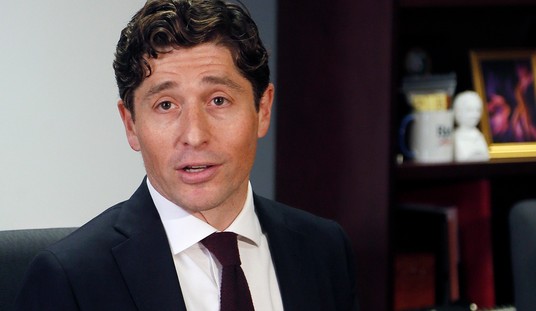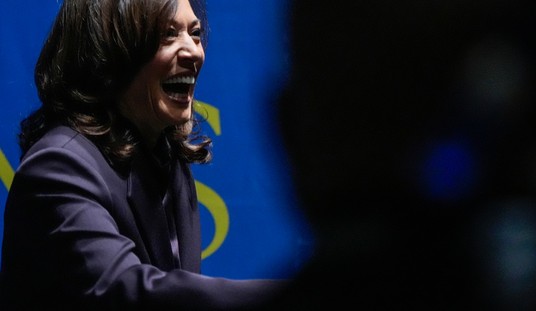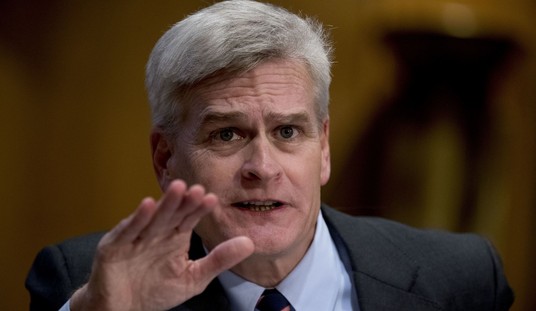Much ink has been poured over the past 24 hours regarding Jeb Bush’s controversial remarks about the state of the Republican Party. In a wide-ranging interview with Bloomberg News, Bush said the following:
“Ronald Reagan would have, based on his record of finding accommodation, finding some degree of common ground, similar to my dad, they would have a hard time if you define the Republican Party — and I don’t — as having an orthodoxy that doesn’t allow for disagreement,” he said. “We’re in a political system in general that is in a very different place right now.”
Whether Jeb Bush really meant to say that Reagan would be unacceptable to contemporary conservative activists or not (context is always important), that view has been expressed by a number of Republican officials since the advent of the Tea Party. Those sentiments regarding Reagan and how he would have governed in today’s climate have been echoed by a number of establishment members of the party. Their short-sighted conjecture is lacking a trenchant grasp of the facts on many fronts. Those who subscribe to this view fail to recognize the importance of the current political climate as compared to the one that existed when Reagan took office.
In that vein, I felt it would be useful to share a post I wrote last July that is pertinent to the current debate. It was during the height of the imbroglio over the debt ceiling when establishment Republicans inside and outside of Congress were accusing us of undermining Boehner’s grand bargain. People claimed that we would have run Reagan out of town back then as well. Now, the debt ceiling deal is universally regarded as a failure, yet these same people will never admit that they were duped. Nor do they apologize for their scandalous misuse of Reagan’s guiding principles to justify their capitulation.
Below the fold is the full piece:
Why We Fight
Over the past week, the Tea Party has been impugned and maligned with more ferocity than ever before. Amidst our push to balance the budget, downsize job-killing government agencies and programs, and preserve our AAA credit rating, we have been condemned as extremists, suicidal, and traitors. Sadly, most of these acrimonious ad hominem attacks were propagated by those who purport to share the aforementioned goals, but feel repulsed by our “intransigent” sense of urgency. Some have even regurgitated Democrat talking points suggesting that Reagan would be labeled a RINO by the Tea Party.
These writers and commentators who supposedly share our ultimate goals for limited government, yet condemn our tactics and sense of urgency, are lacking a sober understanding of the severity of our current predicament in relation to Reagan’s era.
As grim as the situation was at the time of Reagan’s inauguration in 1981, it simply doesn’t compare to the magnitude of our problems precipitated by the growth of the federal government, the insolvent debt, and rampant government dependency. Reagan came to power and fought for limited government in order to preclude the very eventuality that we are experiencing today. Today, in 2011, we are suffering under every pernicious effect of a tyrannical government; the magnitude to which Reagan did not experience, but presciently attempted to avert.
Although Reagan succeeded in his fundamental goals of stalling the inexorable growth of government, cutting taxes, rolling back some regulations, and winning the Cold War, he realized at the end of his presidency that those victories were not sufficient to countermand the self-perpetuating growth of government dependency and tyranny. He knew that due to factors which were mostly beyond his control he had failed to eliminate a significant number of agencies and programs that serve as the backbone for the statist society.
Reagan had learned that liberals had insidiously co-opted so many rent-seekers in government that it was impossible to win a war of attrition by fighting agency-to-agency and program-to-program warfare. Fifty years of steady movement toward socialism had shown that any edict promulgated by the federal government, much like the ancient Persian government described in Esther, “may not be revoked.” He realized that something drastic had to be done to prevent the immutable growth of government that he so ominously envisioned after his departure.
To that end, in 1987, Reagan proposed America’s Economic Bill of Rights. Not only did his plan include a balanced budget amendment; it contained a 2/3 vote requirement for raising taxes, and a constitutional ban on price and wage controls (Reagan’s speech). Some might have called it extreme; others might have condemned it as unrealistic; Reagan viewed it as imperative and indispensable for the future of the nation, even though the government was a fraction of its current size.
As the saying goes, the rest is history. Reagan never saw his dream come to fruition. Instead of electing leaders who would continue in his footsteps, Americans elected leaders to the White House and Congress that continued to augment the size of government, the dependency state, and all of its liberty-infringing, job-killing, income-destroying, and regressive price-hiking side effects. Then, following the 2006 elections, we elected people who have grown government to such unparalleled levels that we are now on the precipice of incorrigible indebtedness, irrevocable dependency, and perennial economic stagnation.
Let’s borrow a sports analogy to conceptualize the magnitude of our current challenge and the commensurate degree of commitment that is required to solve it. When you are down one or two touchdowns in a football game, you don’t play as if you are down four touchdowns. But when you are down four touchdowns, by George, you better play as if you’re down six touchdowns. Reagan’s presidency had predated much of the insurmountable socialism that we face today, yet he deemed it necessary to push constitutional amendments as a means of preempting further statist gains. Now that we have lost all those points to the forces of statism, it is even more incumbent upon us to go for the big plays.
Historically, the growth of government statism has been irremediable. For every “100 yards” that they have advanced, our most successful counteroffensive has only slowed their rate of advance by a few yards. Now, after 80 years of soft-socialism, and 2 1/2 years of hard-Marxism, if nothing drastic is done, the government will control our healthcare sector, financial sector, and many other large components of our once proud free market. In other words, we are down big in the Super Bowl of socialism.
At present, there are hundreds of government agencies, commissions, and offices (many more than in the 80s) that promulgate $1.75 trillion worth of regulations on our job-creators. It is no wonder that a record number of Americans are not in the workforce. Concurrently, those government monstrosities oversee 2,184 assistance programs, in which many of the recipients have been negatively affected by the initial government intervention. In addition, there are 45 million Americans who are dependent on food stamps, 50 million enrolled in Medicaid, while more than half of all Americans receive some sort of payout from the government. That is the double-edged sword that has been foisted upon us by the inane cycle of government dependency and destruction.
As dependent as the citizenry is on the government, the government is just as dependent upon every citizen for its indebtedness. At the current pace, in just 20 years, every man, woman, and child will be responsible for over $100,000 in debt. This is merely a cursory glimpse into the leviathan public policy challenge that awaits us.
Just as Obama’s failed presidency has provided us with unparalleled challenges, it has provided us with historic opportunities. Obama, through his vivid demonstration of failed socialism, has been a more effective advocate for limited government than any conservative leader. An overwhelming majority of the public supports limited government, low taxes, a balanced budget, and repeal of Obamacare. Moreover, as the public continues to see how Obama’s policies engender economic decline, Obama’s disapproval continues to rise. He is now virtually unelectable among Independent voters – the very demographic that the incrementalists on our side claim are repulsed by the Tea Party.
We feel that now is the time to harness our historic mandate, instead of punting it for some unrealistic future political era, in which there are no verifiable means to ensure success. Nor is there any reason to believe that those responsible will have more fortitude to make those bold decisions that they are currently avoiding.
We must remember that good friends can disagree on how to implement shared goals. But, at some point, there must be a sense of urgency that will unite us all to make bold decisions. Yes, perhaps even more bold and “extreme” than those implemented by Reagan in the ’80s. And you know what? Reagan would have done the same thing. After all, we live in extreme times – times that Reagan tried to avoid with extreme constitutional measures.
In that sense, we are the Reagan Revolution of our generation. And regarding the forceful push for a constitutional amendment limiting government, the Tea Party is the Reagan Revolution 2.0.
Looking down from heaven, Reagan would be proud of the newly organized “mob of extremists” that he so profoundly inspired.














Join the conversation as a VIP Member